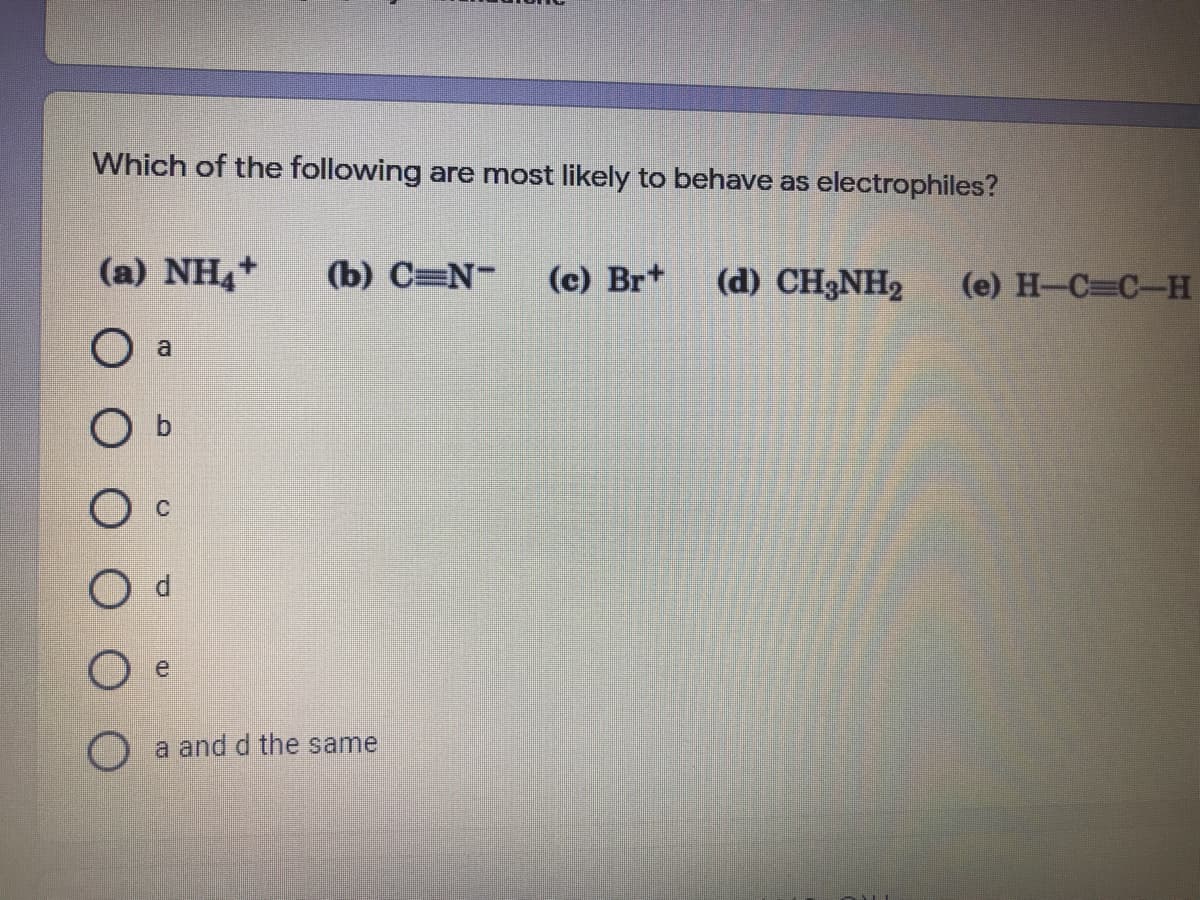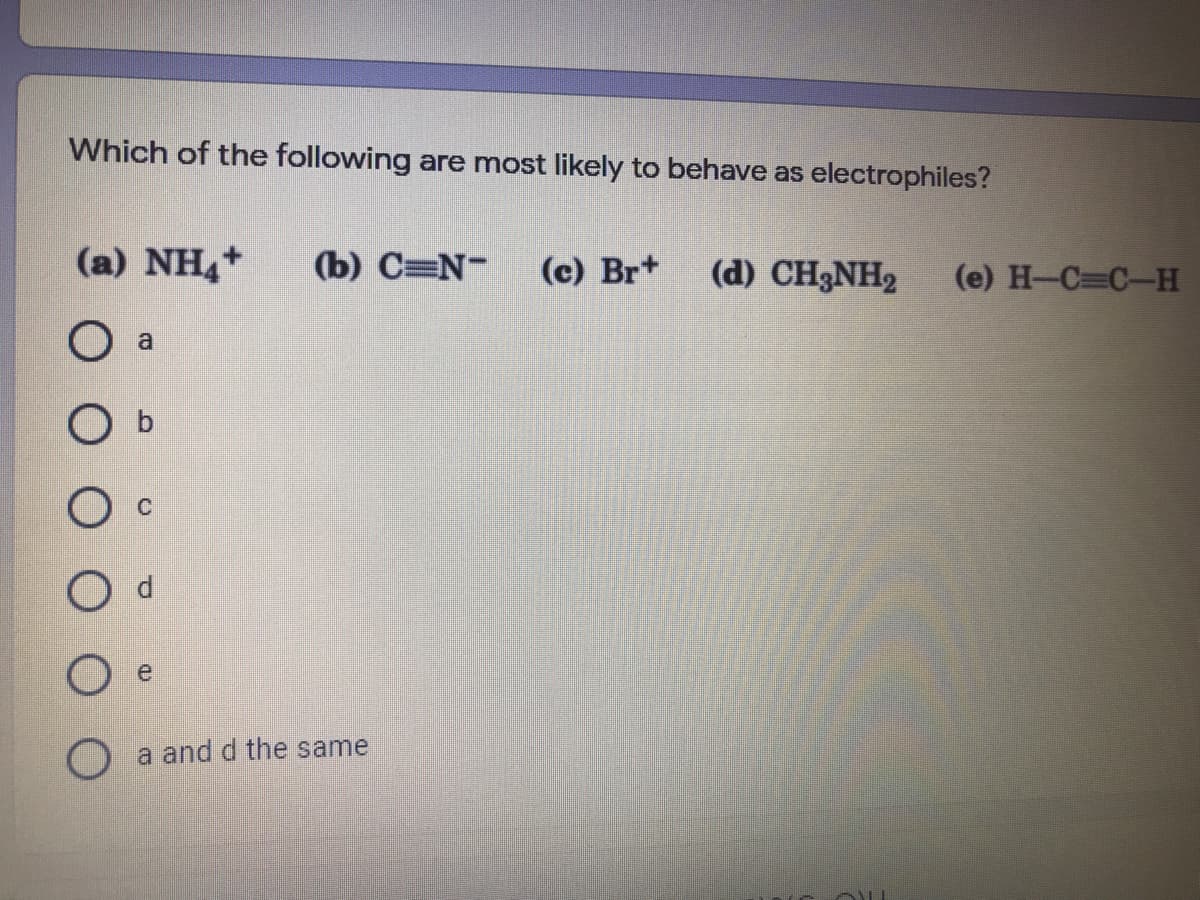Which of the following are most likely to behave as electrophiles? (a) NH4+ (b) C=N- (c) Br+ (d) CH3NH2 (е) Н-С-С-н O a O c O a and d the same
Which of the following are most likely to behave as electrophiles? (a) NH4+ (b) C=N- (c) Br+ (d) CH3NH2 (е) Н-С-С-н O a O c O a and d the same
Chapter23: Carbonyl Condensation Reactions
Section23.SE: Something Extra
Problem 35MP: Isoleucine, another of the twenty amino acids found in proteins, is metabolized by a pathway that...
Related questions
Question

Transcribed Image Text:Which of the following are most likely to behave as electrophiles?
(a) NH+
(b) C=N-
(c) Br+
(d) CH3NH2
(e) H-C C-H
O a
O b
e
a and d the same

Transcribed Image Text:Which of the following are most likely to behave as electrophiles?
(a) NH4+
(b) C=N-
(c) Br+
(d) CH3NH2
(e) H-C C-H
a
e
O a and d the same
Expert Solution
This question has been solved!
Explore an expertly crafted, step-by-step solution for a thorough understanding of key concepts.
This is a popular solution!
Trending now
This is a popular solution!
Step by step
Solved in 3 steps with 3 images

Knowledge Booster
Learn more about
Need a deep-dive on the concept behind this application? Look no further. Learn more about this topic, chemistry and related others by exploring similar questions and additional content below.Recommended textbooks for you

